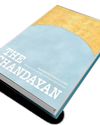A series of campaign strategy mis-steps, lack of funds and second-rung leaders—theories explaining the Congress’s debacle abound. And the party’s alternative vision found few takers

At the entrance of Delhi’s upscale Khan Market, which, according to Prime Minister Narendra Modi, is the epicentre of all the political and intellectual forces out to demolish his image, a large hoarding of Congress president Rahul Gandhi stares out at you. It displays the NYAY message, the Congress’s minimum income guarantee scheme launched on April 2, nine days before the first phase of the 2019 general election. Through NYAY, the party promised to deposit Rs 72,000 annually in the bank accounts of the poorest 20 per cent of Indian households. In that context, the positioning of the NYAY hoarding at Khan Market— frequented by Delhi’s uber rich—seemed a perplexing decision. In fact, several Congress leaders opposed putting up the hoarding in posh localities of Delhi, as NYAY was perceived to be a populist measure by the country’s upwardly mobile middle class and the rich. There was a fear that higher taxes would be imposed to fund NYAY.
Yet, the Congress brass overruled such apprehension and the cash-starved party paid a hefty amount to put it up in the hope that it would create a buzz. “A senior Rajya Sabha member felt that as ‘thought leaders’ and journalists often visit the market, the hoarding will become a talking point among them and eventually influence the larger narrative,” says a Congress leader who did not want to be identified. The incident was a shining example of the party’s disorienting campaign, based mostly on far-fetched inferences. So it’s not surprising that 24 hours before the election results were declared, the party’s data cell convinced Rahul that the NDA would not cross 230 seats and the Congress think-tank assumed that the regional parties of Andhra Pradesh and Telangana—the Telugu Desam Party (TDP), the Yuvajana Shramika Raithu Congress (YSRC) and the Telangana Rashtra Samithi (TRS)—would join the United Progressive Alliance (UPA).
Esta historia es de la edición June 03, 2019 de India Today.
Comience su prueba gratuita de Magzter GOLD de 7 días para acceder a miles de historias premium seleccionadas y a más de 9,000 revistas y periódicos.
Ya eres suscriptor ? Conectar
Esta historia es de la edición June 03, 2019 de India Today.
Comience su prueba gratuita de Magzter GOLD de 7 días para acceder a miles de historias premium seleccionadas y a más de 9,000 revistas y periódicos.
Ya eres suscriptor? Conectar

FINGER CLICKING GOOD
Finally there’s a Smartphone that’s fit to fire your DSLR

RAISING THE BAR
In the dynamic world of mixology, where every drink tells a story and every pour is a masterpiece, a new chapter is being concocted by some of the bars. Here are eight bars that stirred up a riot.

TRUE BLUE
BLUE MAY BE a colour traditionally associated with all things royal, but when it comes to haute horology, especially Breguet, the hue lends its own cues.

DELICIOUS DINING WITH A SIDE OF LUSCIOUS VIEWS
Bonita, a quietly charming restaurant in Goa’s Arossim brims with flavour and a stunning landscape to boot.

A YEAR OF WONDER
Globetrotting to some of the more interesting travel options that spiced the calendar year

THE TASTE TEST - Some of the more interesting restaurants launched in Asia in 2024
In the dynamic culinary landscape of Asia, Spice embarks on a gastronomic journey through a kaleidoscope of noteworthy dining spots that shone through in 2024. From cosy havens celebrating rich cultural heritage using quality local ingredients to chic spaces blending global influences with a playful vibe, each venue offers something special, whether by the beach or beneath starry skies.

TECH TALK
From a Mac that became mini to gizmoheavy watches, from smart air purifiers to intelligent TVs, these top picks defined 2024.

BOOKS TO LOOK FORWARD TO IN 2025
Book review

PEACE ABOVE ALL
Devdutt Pattanaik offers an alternative view of the Harappan civilisation in his newest book, Ahimsa: 100 Reflections on the Harappan Civilization

A Wealth of SCHOLARSHIP
For art historian Aman Nath, 2024 was a great year for art books, demonstrating the range of India's cultural wealth